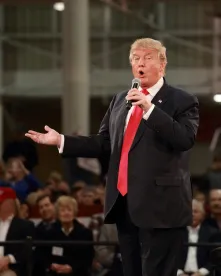The Trump Administration will take office intent on reversing many Obama Administration policies. Although the Trump Administration’s publicly released 100-day plan does not announce a new energy policy, campaign promises and priorities of the Republican-controlled Congress suggest a number of early initiatives that will impact the power sector. Moreover, the Trump transition team for the Department of Energy signaled a variety of potential energy policy priorities in requesting information from the outgoing Obama Administration. The impacts of these regulatory and legislative initiatives will need to be evaluated against the backdrop of market, technology, international, and consumer driven dynamics that are transforming the power sector independent of federal law and policy. The Covington Energy Group will be watching closely the new Administration’s and Congress’ initiatives and evaluating their significance in altering or reinforcing the transformative changes sweeping the power sector. Below, we identify the more prominent expected initiatives from the new Administration.
I. Efforts to Rescind or Block the Clean Power Plan.
-
The Trump Administration might ask the D.C. Court of Appeals or the Supreme Court to stay its hand and not issue an opinion on the appeal challenging the legality of the Clean Power Plan that is currently pending in the Court of Appeals en banc.
-
The new EPA Administrator might initiate rulemaking procedures to modify, delay the effective date, or rescind the Clean Power Plan.
-
The Republican-led Congress might defund EPA implementation or enforcement of the Clean Power Plan.
-
24 State Attorneys General have recommended to the President-elect steps he should take to rescind the Clean Power Plan.
II. Exit from or Mitigating Impact of the Paris Global Climate Change Agreement
-
The Trump Administration might seek an exit from the Paris Agreement or its parent treaty or a defunding of implementation of the Agreement, or it might submit the Agreement for a Senate ratification vote.
III. Rescinding Other EPA Regulations Affecting Power Plants
-
The Trump Administration might withdraw or reconsider proposed regulations or rescind or ease final rules regulating various emissions (e.g., methane, mercury, particulates, ozone, and carbon dioxide) from power plants, pipelines and coal mines.
-
Senate Majority Leader McConnell has expressed strong support, in a letter to the President-elect, for action to rescind a range of environmental regulations, including the Clean Power Plan, affecting the coal industry and the power sector.
IV. Fast Tracking for Infrastructure Project
-
The Trump Administration’s 100-day plan signals regulatory and permitting changes in order to speed up approval for transmission, power plant, and natural gas pipeline projects.
-
The Trump Administration’s 100-day plan also proposes $ 1 trillion in infrastructure development, leveraged through new tax credits and public-private partnerships.
V. Renewable Policies
-
The Trump DOE transition team memo suggests that the Trump Administration might seek to modify DOE loan guarantee programs and R&D support programs that have targeted renewable generation.
-
The memo also indicates that the Trump Administration might roll back administrative measures designed to incentivize new renewable generation, end-use energy efficiency, and demand-side energy management.
-
Finally, the memo intimates that the Trump Administration might announce a national policy to deemphasize electric vehicles.
VI. Support for Nuclear and Coal Generation
-
The Trump Administration might speed approvals of nuclear plant relicensing and might propose subsidies to prevent existing nuclear power plants from closing. The Nuclear Energy Institute has proposed to the Trump transition team a suite of policies to support the industry.
-
The Trump Administration is expected to adopt measures to stabilize the coal mining sector, including preserving existing coal-fired power plants.
VII. Accommodation or Preemption of States’ Diverse Energy Policies
-
It is unclear how the Trump Administration might address State efforts to pursue their own energy policies, which could diverge from Administration priorities. For example, will the Administration interfere with State carbon programs, with State renewable portfolio standards, State subsidy programs for nuclear units, State policies on distributed generation and storage, and state (and regional) power planning?




 />i
/>i

